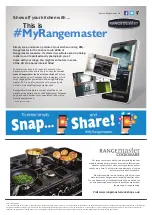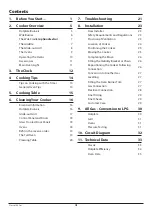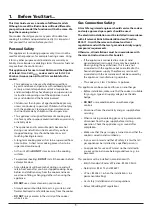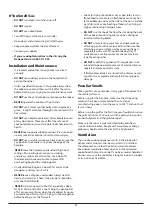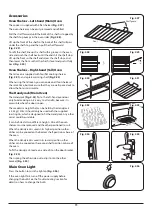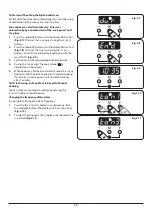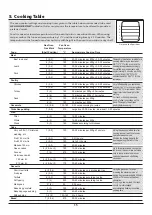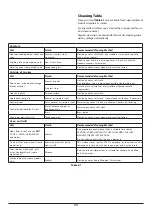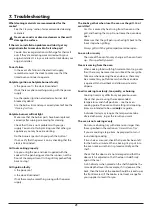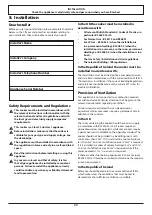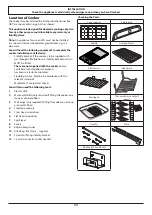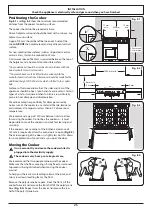
10
Should further browning be necessary, uncover the meat and
increase the temperature to gas mark 4 for a short period.
Cut root vegetables into small pieces unless cooking whole,
e.g. jacket potatoes.
Cover dishes tightly with a lid or foil to prevent evaporation
and transfer of flavour.
Once the oven has been loaded and the ‘S’ setting is in
operation resist the temptation to open the oven door. Heat
will be lost and the cooking time extended.
A meat thermometer is recommended for checking that
a joint or poultry is sufficiently cooked. Insert the probe
through the thickest part of the meat. For the expected
temperatures see Table 2.1
The Fan Oven
The right-hand oven is a fan oven that circulates hot air
continuously, which means faster, more even cooking.
The recommended cooking temperatures for a fan oven are
generally lower than a conventional oven.
Operating the Ovens
Operating the Gas Oven
Push in and turn the knob controlling the oven to gas mark 9
(Fig. 2.23). The oven will light automatically.
Turn the oven knob to the desired gas mark (Fig. 2.24).
Operating the Fan Oven
Turn the oven knob to the desired temperature (Fig. 2.25).
The oven indicator light will glow until the oven has reached
the temperature selected (Fig. 2.26). It will then cycle on and
off during cooking.
ArtNo.235-0004 -
Classic DL oven 1
ArtNo.235-0005 - Classic
DL oven control 2
Meat
Temperature
Beef
Rare
60 °C / 140 °F
Medium
71 °C / 160 °F
Well done
77 °C / 170 °F
Lamb
82° C / 180 °F
Pork
Fresh
88° C / 190 °F
Cured
77° C / 170 °F
Poultry
90° C / 195 °F
Veal
77° C / 170 °F
Table 2.1
Fig. 2.23
Fig. 2.24
Fig. 2.25
Fig. 2.26


